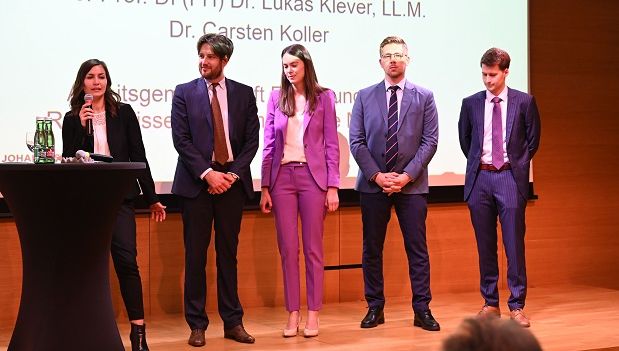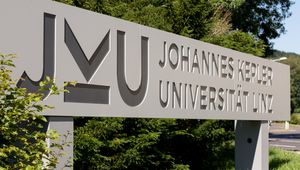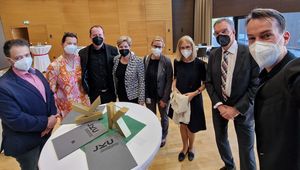Legal experts were presented with a Kepler teaching award. We spoke with them about what makes their courses special.

University assistant Dr. Anna Obereder, Univ.Assist. Mag. Lisa Janko, Mag. Michael Denk, Ass.Prof. DI(FH) Dr. Lukas Klever, LL.M., and Dr. Carsten Koller were presented with the Kepler Award for Feedback Culture and Continuous Improvement for their course "Arbeitsgemeinschaft Einführung in die Rechtswissenschaften und ihre Methoden".
What does the course focus on?
The course "Introduction to Law and its Methods" focuses on base-knowledge legal concepts that are essential for each branch of law, giving students an initial “introduction” to the law. This course focuses on understanding and interpreting laws in particular.
What makes teaching this subject so special?
Legal professionals need a holistic view of the legal sciences. However, during the course of studies, examination subjects are tested separately and, as a result, students often study these areas separately from one another. Our course is special because we teach public law and civil law together, thereby teaching a more collective view of law. In addition, the core course objective is to have students work on texts independently beginning with the first unit in order to build central problem-solving skills from the very start.
What does this award mean to you?
Each faculty member invests a lot of thought, time, and effort in order to be able to provide our students with informative, engaging, but above all, versatile courses. While student feedback praising the course is an award in itself, receiving an award in recognition of outstanding teaching by a jury of experts not only honors our work from the past academic year, it also serves as an incentive and encouragement to continue developing and improving the course. We are extremely pleased about the award!
What do you think constitutes perfect teaching?
Perfected instruction has to respond to the students’ needs and involve them. What's more, despite the fact that questions are becoming increasingly complex, we need to introduce students to solutions and give them a sense of accomplishment as this boosts their level of motivation. However, this requires continual, ongoing improvements and adjustments to the way we teach. While there is no such thing as perfect instruction, we can still aspire toward it.











